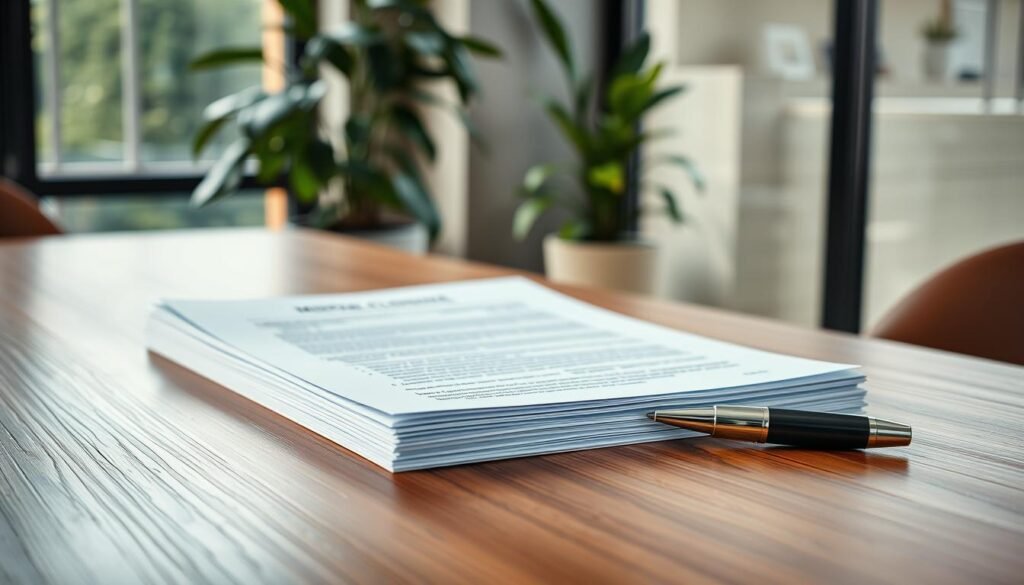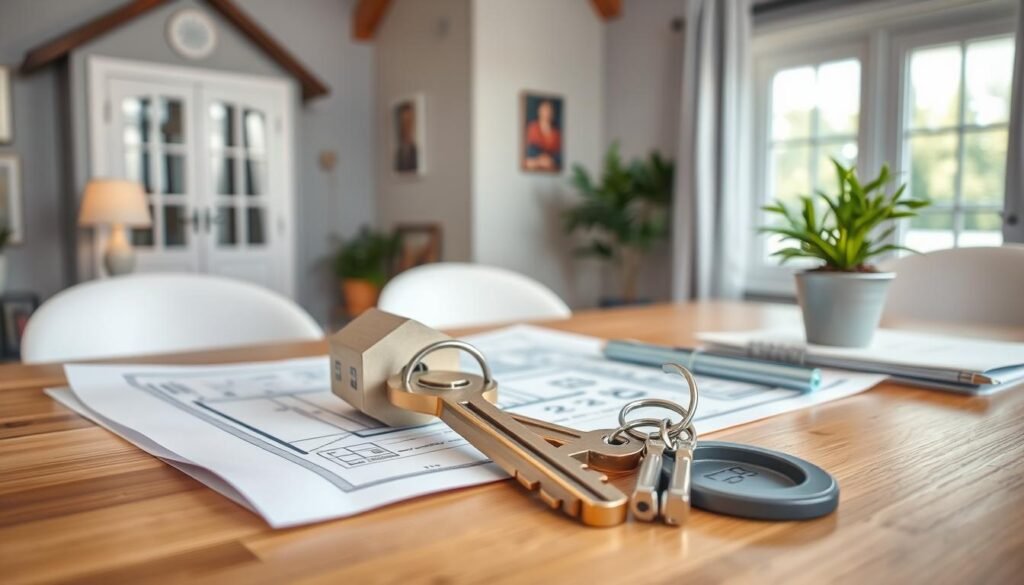This post may contain affiliate links, which means I may earn a commission if you purchase through these links at no extra cost to you
I would have been so frustrated, if I made it all the way to the end of my home-buying journey, preparing to get the keys and all of a sudden my mortgage was denied at the last minute. That would have definitely broken my heart and discouraged me. Sadly, it’s not as rare as people think. The National Association of REALTORS® found that 4% of deals fell through in early this year, often due to various issues. Being ready for a possible denial can help you switch from disappointment to celebrating in your new home. We’ll explore how to keep your home-buying process smooth towards moving day.
Table of Contents
ToggleUnderstanding Mortgage Denial at the Closing Table
It’s important to understand the key differences between preapproval and final approval during your home buying journey. Many buyers think getting preapproved means they will definitely get the loan. Yet, the final stage of approval can still end in denial if certain criteria aren’t met.

Difference Between Preapproval and Final Approval
The first step, preapproval, is when lenders check your financial state. Here, they look at your credit and briefly into your income and debts. This gives you a condition-based qualification.
Final approval happens after a deeper review called mortgage underwriting. During underwriting, lenders look closer at your income proof, assets, and the home’s value. They make sure all conditions from the preapproval are met. Any new debts or financial changes are also reviewed. Not properly disclosing debts is a big reason for loan denial.
Common Reasons for Mortgage Denial
Mortgage denials can happen for several reasons at closing time. Changes in jobs are a big factor. Lenders want to see stable job history. A new job could change your debt-to-income ratio, raising your interest rates or causing denial.
Also crucial is keeping up with your payments. Missing or being late on payments makes you seem risky to lenders. Other issues like outstanding debts, large deposits without a source, and not meeting the minimum credit score can also block your loan. Bankruptcies and foreclosures have their own waiting periods too.
Impact on the Home Buying Process
Mortgage denial can have big consequences, like losing your home. Solutions can include finding a co-signer or submitting more documents if problems arise from things like your job or credit.
Being ready for these possible issues can help avoid problems. Solving any financial issues before underwriting, staying financially stable, and keeping open communication with your lender are key steps. These actions can keep your home buying path clear of unexpected obstacles.
Steps to Avoid Mortgage Denial
Successfully navigating mortgage approval means keeping your finances stable. This is especially important when buying a home. By taking some key steps, you’ll face fewer issues when closing the deal on a house.
Maintain Financial Stability
Avoiding mortgage denial starts with financial stability, from preapproval to closing. Keep your financial situation the same. Don’t change jobs, open new credit lines, or alter your debt-to-income ratio before closing. These could risk your approval. Lenders like your debt-to-income ratio under 50%, but aim for under 43% for the best loan options.
Keep Clear of Large Purchases
It’s crucial to avoid big purchases during this time. Things like buying a car can hurt your debt-to-income ratio. Lenders look at your credit, income, and debts when underwriting a mortgage. By avoiding big buys, your finances stay strong through the closing.

Regular Communication with Lenders
Keeping in touch with your lender is key. Update them often on your finances. This lets them help you promptly and avoid surprises. According to Experian, even small delays or old info can affect the lender’s decision. Make sure you have closing costs ready and your financial info updated with your lender. This way, any issues can be fixed quickly, making buying your home smoother.
| Aspect | Preferred Requirement |
|---|---|
| Debt-to-Income Ratio | Less than 43% |
| Consistent Income and Employment | 2-year history |
| Credit Score | Minimum 620 (Varies by loan type) |
| Loan-to-Value Ratio | Maximum 97% |
| Closing Funds Coverage | Up to 6 months of expenses |
Common Financing Issues Leading to Denial
Getting a mortgage is a key step in buying a home. Knowing what could risk your approval is crucial. It is very important to be financially stable and wise, especially near the closing. Let’s talk about the main financing problems that could cause a mortgage denial.

Big Purchases on Credit
Buying big items on credit before or during your mortgage application can hurt your chances. These purchases can lower your credit score. A big jump in your debts can suggest you’re not handling your finances well. It’s smarter to wait on big purchases until after your loan is secure.
Applying for Additional Credit
Seeking new credit lines, like credit cards or loans, during this time is a warning sign for lenders. Each time your credit is checked, your credit score can drop. This can change how lenders see your financial health. Lenders prefer borrowers who show they are financially stable. More credit applications can lead to a loan denial.
Avoiding these financial mistakes can smooth out the mortgage approval process. By staying away from big financial steps, you’re more likely to buy your dream home successfully.
Home Appraisal and Inspection Issues
During the closing process, two main hurdles often arise: home appraisal and inspection. These steps are key to getting your mortgage approved without delays. Let’s look at how to avoid these potential problems.
Low Home Appraisal
If your home’s appraisal comes in low, it might stop you from getting financing. This happens when a home is valued less than the sale price. Lenders fear they’re paying too much. Believe it or not, about 92% of closing delays are due to low appraisals.
Inspection-Related Problems
Issues found during home inspections can also cause delays, affecting 87% of closings. Problems might include structural damage or old systems. These might force you to renegotiate or even cancel the deal.
Here is a table showing how certain issues affect buying a home:
| Issue | Impact on Process | Percentage of Delays |
|---|---|---|
| Low Home Appraisal | Delays Finance Approval | 92% |
| Inspection Problems | Necessitates Repairs/Renegotiations | 87% |
| Title Issues | Legal Complications | 68% |
| Paperwork Errors | Documentation Delays | 41% |
Knowing these issues can lessen concerns and make your transaction smoother. Prepare for appraisal and inspection to avoid surprises and secure your financing.
Title and Deed Concerns
When you buy property, checking the title and deed is key. This check ensures the seller can legally sell. It also finds any liens or restrictions. Taking care of these issues early avoids problems at closing. Don’t worry, you will not have to do this personally. Somebody on your team will handle this.
Outstanding Liens
Unpaid taxes or old mortgages can endanger your property purchase. These must be resolved before you take ownership. A detailed title search will show any claims on the property. Work with a lawyer or title company to fix lien issues quickly. Not fixing them can cause delays or cancel the closing.
Deed Restrictions
Deed restrictions might limit property use. They could dictate building style or land use. Finding these early saves time and money. Your legal team will point out these restrictions. This lets you make smart choices and avoid future legal problems.
Being informed helps you face buying challenges confidently and secure your dream property.



